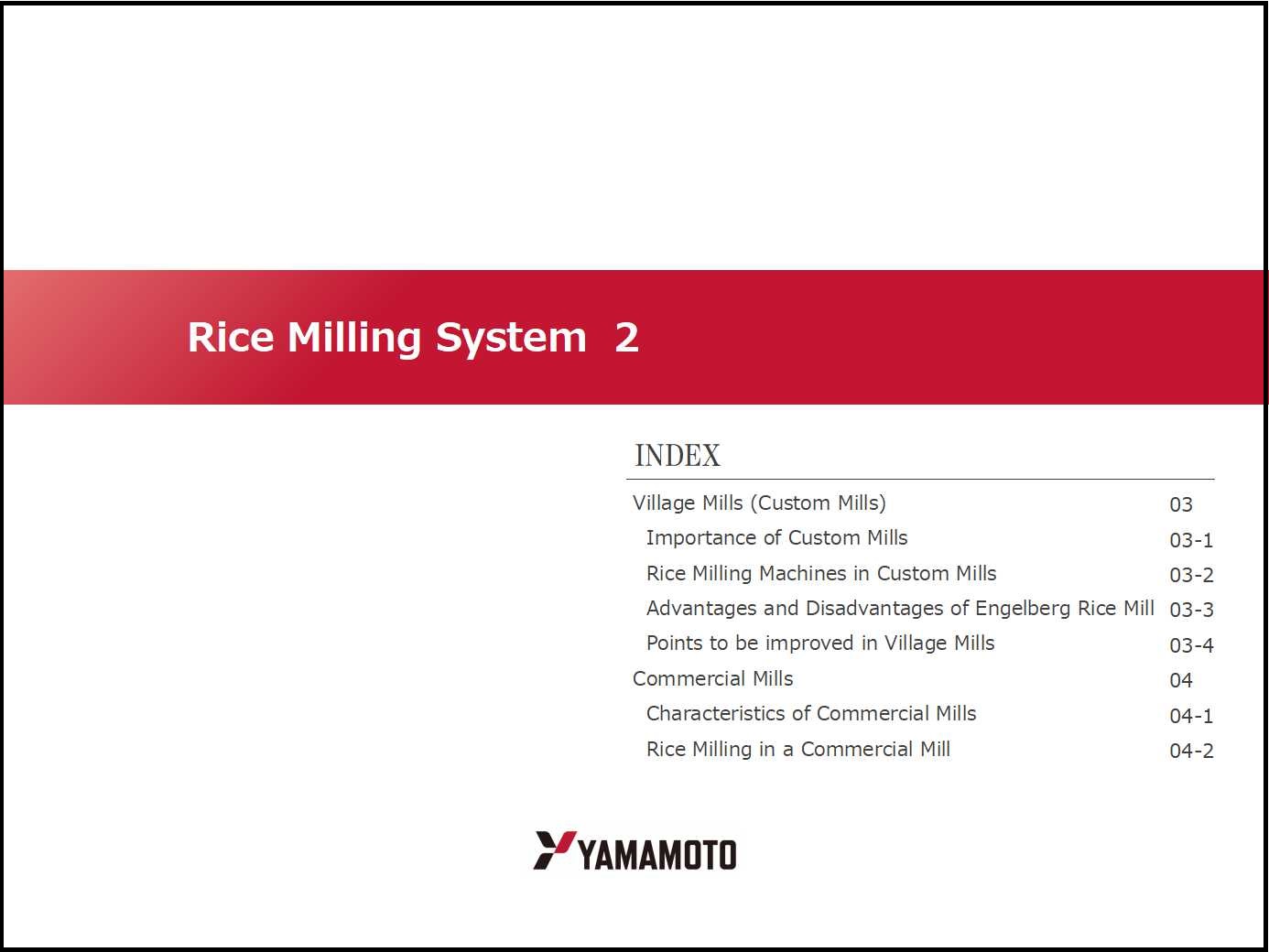47. Rice Milling System 2
- INDEX -
Village Mills (Custom Mills)
Importance of Custom Mills
Rice Milling Machines in Custom Mills
Advantages and Disadvantages of Engelberg Rice Mill
Points to be improved in Village Mills
Commercial Mills
Characteristics of Commercial Mills
Rice Milling in a Commercial Mill
Village Mills (Custom Mills)
Importance of Custom Mills
In the majority of rice-producing countries in Asia, the number of rice mills that mill rice consumed by farmers themselves is greater than that of rice mills distributing milled rice commercially. The amount of rice processed in custom mills is also larger. In such village custom mills, a small amount of rice is processed for local consumption by small farms. They are small-scale and have poor equipment. Many years ago, husking and polishing were done manually using a pestle and a mortar.
The Engelberg rice mill replaced the pestle and mortar. It is still used in parts of Africa and West Asia. It is used in many isolated villages for custom milling. One to three Engelberg mills are operated with an electric motor or a diesel engine. Their capacities range from about 150 to 350~400 kg of paddy/h.
Rice Milling Machines in Custom Mills
Village mills mainly mill rice for farmers’ direct consumption. As they are in isolated villages or are of small scale, rice milling machines are required to be durable, easy to handle, simple and cheap.
